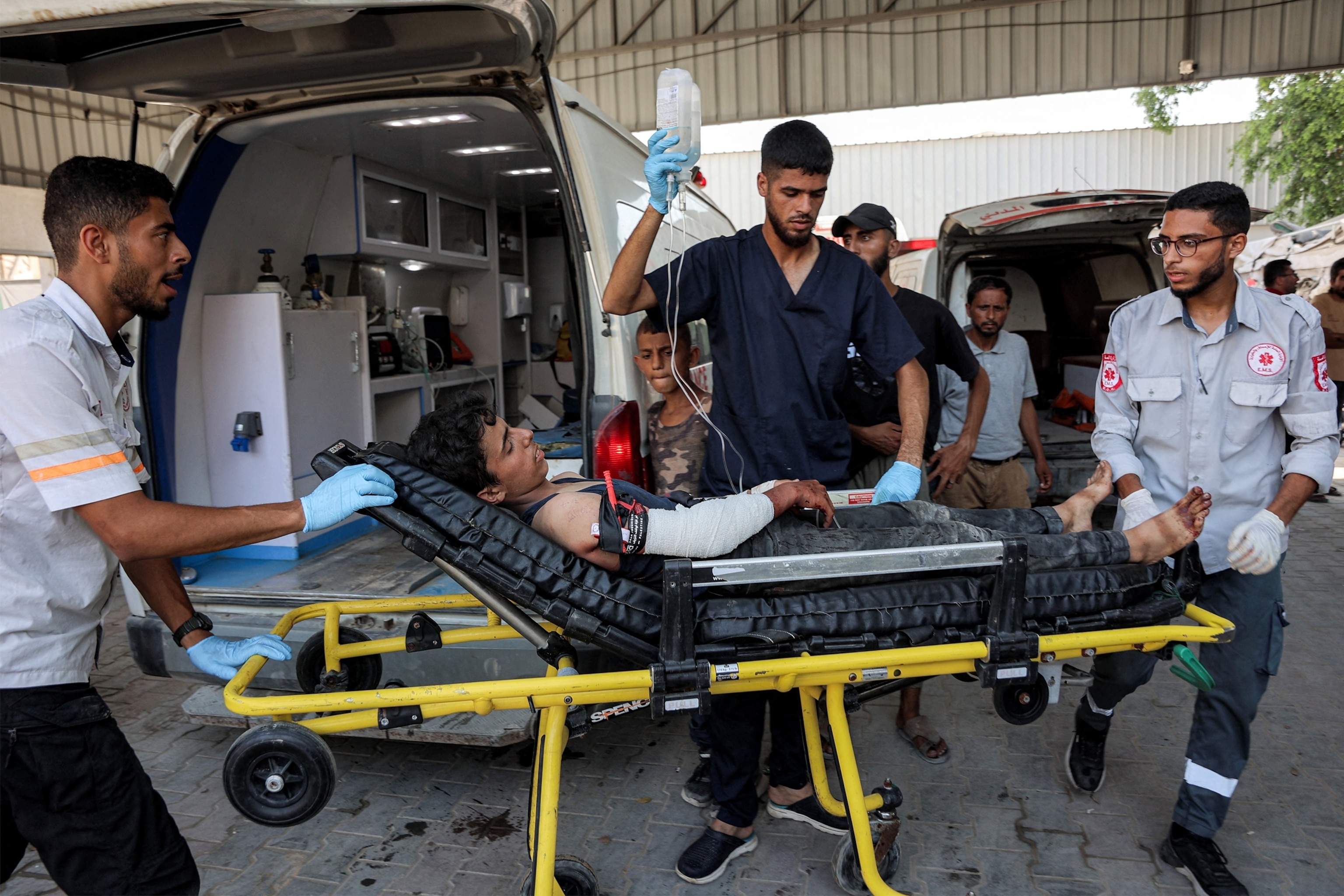High Level Of Multidrug-resistant Bacterial Infections In Gaza, Analysis Finds

Cases of multidrug-resistant bacterial infections are high in Gaza amid the ongoing Israel-Hamas war, a new analysis finds.
The widespread prevalence of multidrug-resistant bacteria is expected to complicate the treatment of patients in the war-torn region, where medical supplies, including medicines, are in short supply due to insufficient aid flowing in.
The team that analyzed the data -- from Gaza and the U.S. -- looked at around 1,300 specimens collected by Al-Ahli Hospital in Gaza City in the northern part of the strip, between Nov. 1, 2023, and Aug. 31, 2024. Multidrug resistance was defined as a bacterium that couldn't be killed by at least one drug in three or more classes.
About two-thirds, or 66.9%, of the samples that were assessed were found to be multidrug-resistant, according to the peer-reviewed research comment published Tuesday in the medical journal The Lancet.
The bacteria were resistant to antibiotics, including amoxicillin–clavulanate, cefuroxime, and cefotaxime, according to the analysis. The analysis also found that resistance to two antibiotics, ceftriaxone and ceftazidime, was high among bacteria found growing in infected wounds.
Researchers also detected the presence of MRSA -- or Methicillin-resistant Staphylococcus aureus -- a type of bacteria that is resistant to several antibiotics, in some samples.
The team also compared two periods of the war, the first from Nov 1, 2023, to March 31, 2024, and the second from April 1, 2024, to Aug 31, 2024. They found that the prevalence of multidrug resistance was relatively unchanged, from 66.7% to 68.2%, respectively during the two periods that were analyzed.
Bilal Irfan, co-author of the analysis and a bioethicist who conducts research at Harvard's Brigham and Women's Hospital and the University of Michigan, told ABC News that the collapse of Gaza's health care system has exacerbated the spread of multidrug-resistant bacterial infections.
"With widespread deliberate targeting of hospitals, laboratories, water desalination plants, that's even harder to assess the infection burden or the antibiotic resistance burden because the laboratories that would be assessing this sort of stuff are either destroyed or out of the service whether they're in universities or hospitals," Irfan said. "The health care staff that would be regularly doing this have either been killed, abducted or otherwise, displaced so even getting a picture of all this, it's very difficult."
Israel has claimed that Hamas uses hospitals, and networks of tunnels beneath them, as bases to conduct and promote terrorist activity, and U.S. officials have backed this claim. Hamas, however, has repeatedly denied it.
Irfan said the attacks on hospitals and the displacement of families sheltering around hospitals can contribute to the transmission of infectious diseases, including multidrug-resistant bacterial infections.
"So, all of these risks obviously require, first and foremost, an end to the chronic hostilities, but also the reconstruction has to involve Palestinian stakeholders who have been in Gaza, who understand kind of the situation of the health system and how to actually rebuild it and how to repair it," Irfan said. "A lot of these things are not going to be solved even when you have ceasefire. It's gonna take years, if not decades, to even reverse at least some of these numbers and some of these crises."
A December 2024 report from the U.N. Human Rights Office found that Israel has established "a pattern of deadly attacks" on and near hospitals in Gaza. U.N. experts have also called for the protection of health care workers in Gaza, many of whom have been killed or detained in the ongoing war.
The international medical community has a "duty to act and respond" by calling for a ceasefire and helping stabilize laboratories in Gaza, the authors wrote.
The team also called for a coordinated response from humanitarian agencies and donors to the drug supply needs of hospitals. The analysis suggested that the depletion of stockpiles of broad-spectrum antibiotics has likely contributed to the rise of multidrug resistance.
Popular Products
-
 Collapsible Telescopic Cane
Collapsible Telescopic Cane$157.99$99.78 -
 Rollator Walker & Transport Chair
Rollator Walker & Transport Chair$410.99$286.78 -
 Electronic Bidet Toilet Seat
Electronic Bidet Toilet Seat$610.85$490.78 -
 Adjustable Anti-Snoring Mouth Guard S...
Adjustable Anti-Snoring Mouth Guard S...$40.99$27.78 -
 Massage Ball & Peanut Massage Stick
Massage Ball & Peanut Massage Stick$30.99$20.78


